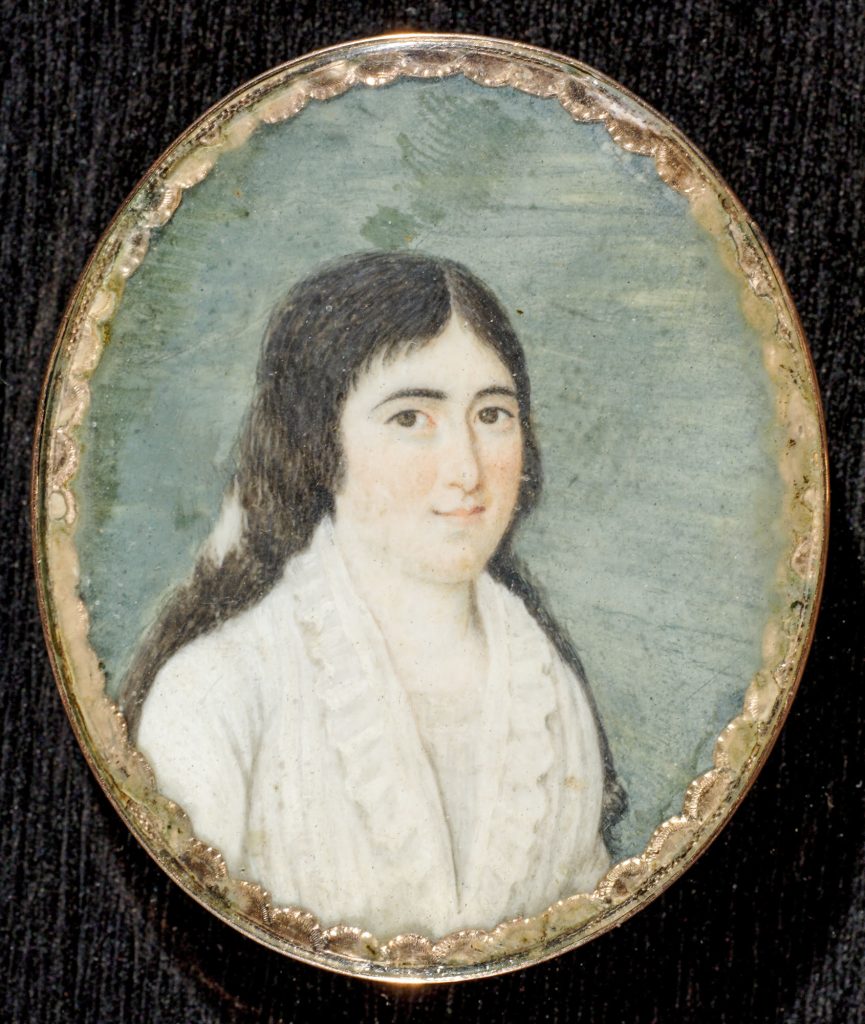Abigail Lopez, born in 1771, was the fourth child born to Aaron Lopez and Sarah Rodriquez Rivera, his second wife. By her father’s first marriage, she had four older siblings. In addition, her parents would have four more children after her, making for a large and lively family with an age range of nearly 20 years between the eldest and youngest siblings. Abby was somewhere in the middle of this brood.
Abigail lived the early years of her life in Newport, but when the British threatened to occupy the town in 1776, her cautious father—a patriot sympathizer—moved the family to an estate in Leicester, Massachusetts, where they spent the war years. Abby, as the family called her, was 11 years old when her father accidentally drowned in a pond as the family was making its return to Newport, leaving her fatherless.
In 1790, 19 year old Abby married 22 year old Isaac Gomez, Jr. of New York, the son of Moses de Daniel Gomez, an old acquaintance and business associate of her father’s. Her new husband, named after an older sibling who had died in infancy, proved generally incompetent at business. His interests lay outside of the familiar mercantilism of his family milieu, in the world of literature. In 1820 he published an anthology of poetry and prose, perhaps the first literary work compiled by an American Jew. Entitled Selections of a Father for the Use of his Children, it was well regarded and rather popular, and John Adams was enough impressed by the publication to write to Gomez to tell him, “it shall be a manual on my table.” As the title of the work suggests, Gomez dedicated himself to their seven children; he was, in addition, an adoring husband. In 1829, after thirty-eight years of marriage, Isaac gave Abigail as a gift a prayer book copied out in his own hand, leather bound, with marbled edges and containing the following note: “I thank God for having created thee for me, and me for thee…and I trust that you are well convinced that did I possess the riches of Peru my greatest happiness would be to lay them at your feet.”
